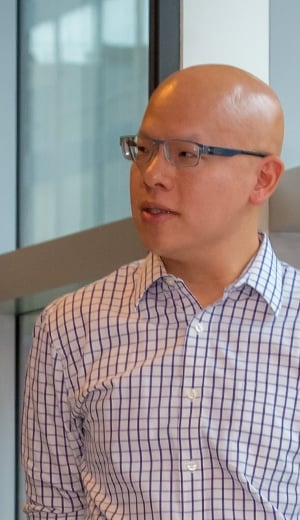US systems expert targets Australian youth well-being
Research news
In a world first, Deakin’s Centre for Social and Early Emotional Development (SEED) is establishing a systems approach to fostering the social and emotional development of young people in Australia.
To assist in this effort, the Centre is consulting one of the world’s leading proponents of the integration of systems science and chronic disease prevention, US-based Professor Terry Huang.
Professor Huang has helped to oversee ground-breaking systems programs that have begun to achieve real changes in the obesity epidemic in America.
As Director (2005-2010) of the Obesity Research Strategic Core, Eunice Kennedy Shriver National Institute of Child Health and Human Development, NIH, Professor Huang oversaw and co-ordinated over $40 million of annual obesity funding.
He is currently Public Health Professor at both City University of New York and the University of Nebraska Medical Centre (UNMC).
In December, 2015, Professor Huang, together with SEED’s Professor Helen Skouteris and Professor Craig Olsson, hosted the first SEED systems workshop to develop a world-first, evidence-based and translatable curriculum from birth to 18.
Professor Skouteris, SEED Leader (Translation Platform) and Associate Head of the School of Psychology (Research and Research Training), said that while systems thinking has been influencing various sectors over the past 50 years, it is new to the field of social and emotional development.
“Over recent decades we have found that trying to change individuals’ behaviour - by encouraging them to eat better, to reduce heart disease, diabetes or obesity, for instance - was too simplistic and wasn’t working,” Professor Skouteris said.
“To achieve real change, we have realised that we need to tap into the broader system.
"A systems perspective on public health emphasizes that each 'actor' in a system has a role to play to create change, calling for an integrated top-down and bottom-up approach.
"Professor Huang is helping to show us how we can use a systems approach to embed social and emotional development into the curriculum in every stage of a child’s life, from birth (with maternal and child health nurses), through to kindergarten, primary and secondary school.”
Professor Skouteris noted that Australia faces a growing need to build child and adolescent social and emotional resilience and address problems such as bullying, alcohol abuse and adolescent mental health - and these problems, as well as obesity, are generally preventable through appropriate psycho-social and environmental support.
She explained that a key goal for the SEED Strategic Research Centre was ensuring that its outputs were translated actively into health, education, and community systems, through partnerships with community, government and non-government organisations.
Professor Huang added that using a systems approach was “not about just focussing on individuals, but being keenly aware of the environmental and policy context.
“It is about understanding and intervening in the many factors that are driving a problem,” he said.
“The focus needs to be on developing a long-term, connected and large scale approach.
"By scaling up our systems thinking capacity, we can achieve powerful shifts that can lead to improved population health.”
Share this story
 Professor Terry Huang
Professor Terry Huang
